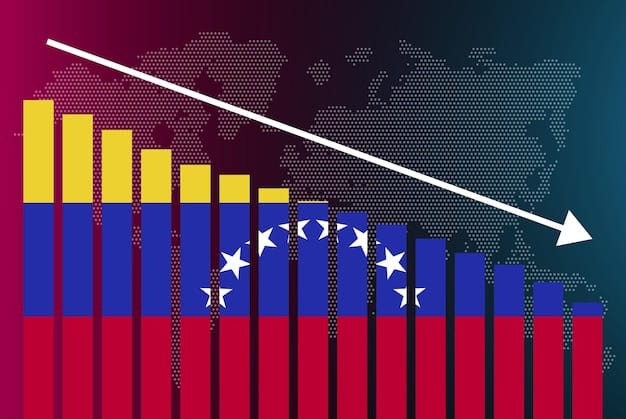Unmasking the Truth: Fact-Checking the President’s Climate Change Statements

Unmasking the Truth: A Fact Check of the President’s Statements on Climate Change dissects the accuracy of the president’s public declarations regarding climate science, policy impacts, and international agreements, providing a necessary examination for informed public discourse.
In an era dominated by discussions surrounding environmental policy and climate science, it’s crucial to ensure that information disseminated by public figures, particularly the President, is accurate and transparent. This article, Unmasking the Truth: A Fact Check of the President’s Statements on Climate Change, will critically assess recent statements made by the President concerning climate change, examining the factual basis of each claim with evidence-based analysis.
Examining the President’s Statements on the Paris Agreement
The President’s statements on the Paris Agreement have been a focal point of contention given its historical significance and the U.S.’s role in international climate governance. Understanding the precise factual basis of the President’s claims about the Agreement is essential for a clear perspective.
Claims of Economic Harm
A significant portion of the President’s narrative involves claims that the Paris Agreement would harm the U.S. economy, particularly impacting jobs and industry competitiveness. These arguments often revolve around the costs associated with emissions reductions and the purported unfair advantages given to other nations.
- Examining official economic impact assessments.
- Comparing U.S. economic performance with that of other Paris Agreement signatories.
- Analyzing specific industry sectors affected and job creation/loss related to climate policies.
Independent analyses typically contradict the President’s claims that the Paris Agreement would devastate the U.S. economy. Studies suggest that transitioning to a low-carbon economy can create new jobs and stimulate growth in renewable energy sectors. However, the distribution of economic benefits and costs remains a vital consideration, particularly for workers in traditional energy industries.

Analyzing Claims About Extreme Weather Events
Another prominent aspect of the President’s discourse is his statements regarding the link between climate change and extreme weather events. It’s essential to dissect these statements to determine alignment with scientific evidence and expert consensus.
Attribution of Specific Events
The President has often made pronouncements about specific weather events, either downplaying or denying their connection to climate change. Such statements warrant thorough scrutiny to ensure an informed public understanding.
Scientific consensus indicates that while it’s challenging to attribute any single weather event solely to climate change, the increasing frequency and intensity of certain events are linked to global warming. Heatwaves, droughts, and some types of floods show a clear correlation with rising temperatures and altered weather patterns.
Impact on Coastal Regions
Coastal regions face heightened vulnerability to climate change impacts like rising sea levels and intensified storm surges. Assessing the accuracy of statements related to these impacts is crucial for promoting effective adaptation measures.
- Reviewing scientific reports on sea-level rise projections.
- Analyzing historical data on coastal flooding and erosion.
- Evaluating the effectiveness of existing protective measures.
While the President has often downplayed the role of climate change in extreme weather, research underscores the significant influence of global warming on many of these events. Accurate communication of these trends is vital for informing policy decisions and enhancing public preparedness.
Evaluating Statements on Renewable Energy
The President has frequently expressed opinions regarding the potential and feasibility of renewable energy sources. These claims need to be thoroughly checked against available data and technical analyses.
Efficiency and Reliability
The President has often cast doubt on the efficiency and reliability of renewable energy technologies like solar and wind power. Evaluating these claims requires examining real-world performance data and grid stability assessments.
Economic Viability
Another key aspect is the economic viability of renewable energy, including cost competitiveness and job creation potential. Claims surrounding the economics of renewables should be subjected to detailed analysis.
Contrary to the President’s skeptical views, renewable energy sources have seen significant advancements in efficiency and cost-effectiveness. Solar and wind power are now competitive with traditional fossil fuels in many regions, and the deployment of renewable energy projects is driving job growth and economic development.
Fact-Checking Claims About International Cooperation
The President’s narrative often involves claims about other countries’ commitments and actions regarding climate change. These statements require international verification to ensure accuracy and fairness.

Commitments from Other Nations
The President sometimes alleges that other nations are not meeting their climate commitments or are benefiting unfairly from international agreements. These claims should be evaluated based on publicly available data and independent assessments.
While some nations may fall short of their climate commitments, many countries are making significant strides in reducing emissions and investing in renewable energy. International cooperation remains crucial for tackling climate change, and misrepresenting other countries’ efforts could undermine collective action.
Technological Innovation
The President’s statements also touch on the pace and potential of technological innovation in addressing climate change. Examining the feasibility and scalability of innovative solutions is essential.
- Assessing the current status of carbon capture technologies.
- Evaluating the potential of emerging energy storage solutions.
- Analyzing the impact of policy incentives on technological innovation.
Technology plays a critical role in achieving long-term climate goals. Government support for research and development, coupled with market-based incentives, can accelerate the deployment of innovative solutions and drive the transition to a low-carbon economy.
Impact on Scientific Integrity and Public Trust
The accuracy of the President’s statements on climate change has broader implications for scientific integrity and public trust in government. Misinformation can erode confidence in scientific expertise and hinder effective policy implementation.
Polarization and Misinformation
Inaccurate claims can exacerbate political polarization and contribute to the spread of misinformation. Promoting evidence-based communication is essential for fostering constructive dialogue and informed decision-making.
A significant challenge in climate communication is combating misinformation and skepticism. Accurate messaging that highlights the risks of climate change and the benefits of mitigation measures can help build public support for effective climate policies.
Role of Independent Analysis
Independent fact-checking and analysis play a crucial role in holding public figures accountable and ensuring the accuracy of public discourse. Transparent and unbiased assessments are essential for promoting informed public understanding.
Independent organizations, academic institutions, and fact-checking initiatives provide valuable resources for verifying statements and evaluating policy claims. These efforts enhance transparency and accountability, empowering citizens to make informed decisions about climate change.
The Importance of Evidence-Based Policy
Ultimately, the accuracy of presidential statements on climate change underscores the significance of evidence-based policy. Effective climate solutions depend on a foundation of scientific understanding and informed decision-making.
The Role of Science Communication
Clear and accurate communication of climate science is essential for promoting informed public discourse and effective policy implementation. Misinformation can undermine public trust and hinder efforts to address climate change.
Evidence-based policies that are grounded in scientific understanding are essential for addressing climate change effectively. Such policies foster sustainable solutions and promote the well-being of current and future generations.
| Key Point | Brief Description |
|---|---|
| 🌍 Paris Agreement | Claims about economic harm are often unfounded. |
| 🌪️ Extreme Weather | Attribution to climate change is complex but evident for some events. |
| ☀️ Renewable Energy | Cost-effectiveness and reliability have improved significantly. |
| 🤝 International Cooperation | Many countries are committing significantly to climate goals. |
Frequently Asked Questions
▼
The President has claimed that the Paris Agreement would significantly harm the U.S. economy, leading to job losses and an unfair competitive disadvantage compared to other nations.
▼
While the President often downplays the link, scientific studies show increasing frequency and intensity of extreme weather events are correlated with rising global temperatures.
▼
Contrary to some of the President’s claims, renewable energy technologies like solar and wind have become significantly more efficient and cost-effective in recent years.
▼
While progress varies, many countries are actively working to meet or exceed their climate goals, investing in renewable energy and implementing emissions reduction policies.
▼
Fact-checking ensures the public is informed by evidence-based information, critical for making sound decisions about climate policy and promoting effective action to address climate change.
Conclusion
In summary, unmasking the truth behind presidential statements on climate change is essential for fostering an informed public dialogue grounded in evidence. By scrutinizing claims about the Paris Agreement, extreme weather events, renewable energy, and international cooperation, this analysis aims to promote evidence-based policy decisions and protect public trust in government and scientific institutions.





